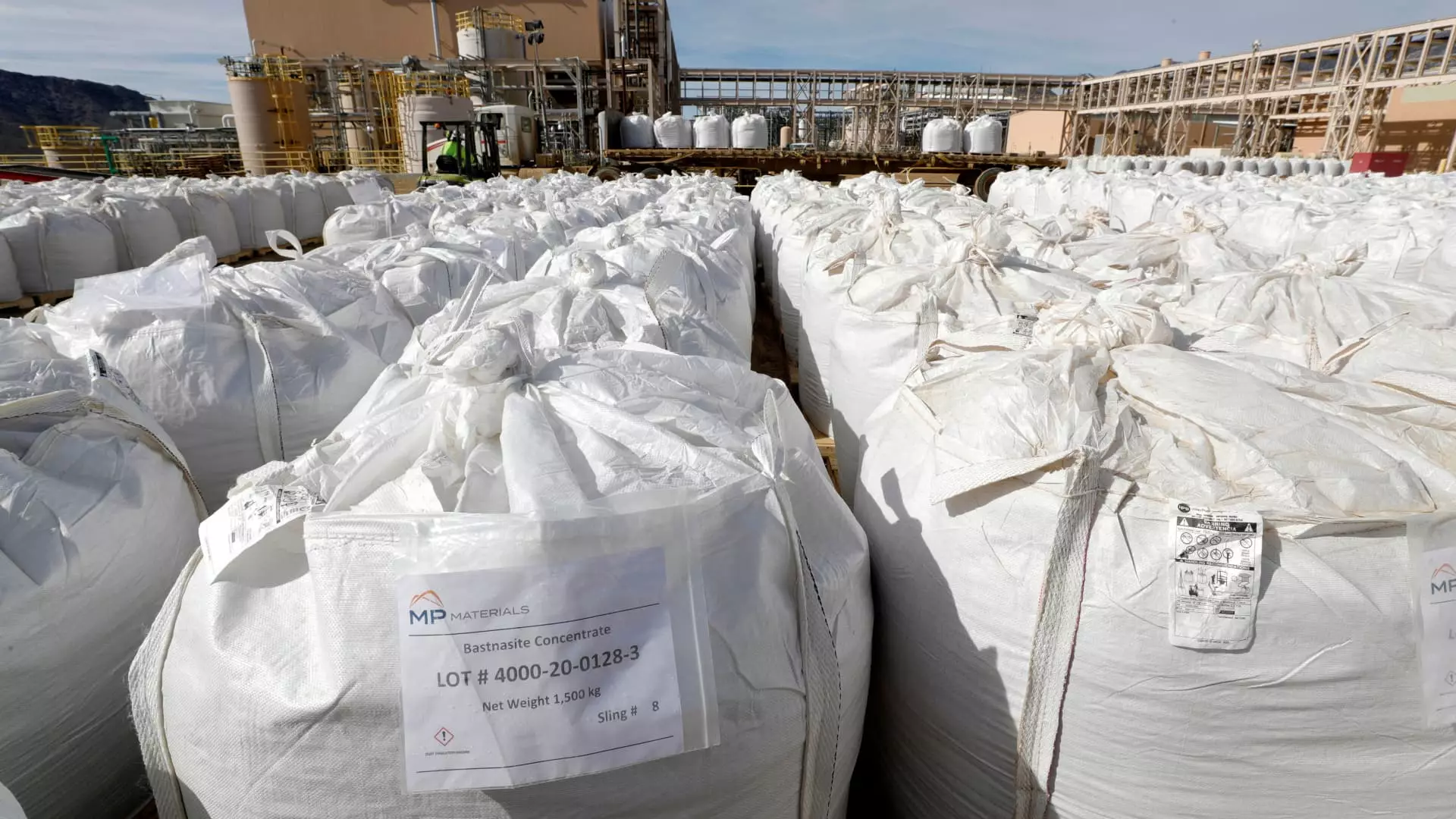One of the most dramatic stories of the day is the meteoric rise of MP Materials, which soared over 47%. Such a sharp increase raises eyebrows and invites skepticism. While the company proudly announced that the U.S. Defense Department would inject $400 million via preferred stock, the underlying sentiment warrants a deeper examination. This move, ostensibly a boost to national security and strategic assets, could also be a double-edged sword. The government’s involvement might generate short-term enthusiasm, but it raises questions about corporate independence and the real sustainability of MP Materials’ valuation. Are investors simply riding the wave of military-backed optimism, or is this genuinely a testament to the company’s robust future? Considering the broader geopolitical landscape, the risk remains that such gains could be transient if the strategic advantage wanes or if geopolitical tensions shift. *The market’s infatuation with such government-influenced companies often masks fragility beneath the shiny surface.*
The Flight to Safety: Delta and McDonald’s Show Market Resilience
Contrasting the speculative fervor of rare earths, established blue-chip companies like Delta Air Lines and McDonald’s are demonstrating resilience, suggesting a bifurcation in the market’s confidence. Delta’s 11% spike following an optimistic outlook signals investor trust in companies that weather economic fluctuations by adapting and reinforcing their core competencies. Meanwhile, McDonald’s short-term boost after Goldman Sachs’ upgrade reflects fundamental strengths—consistent demand and pricing power—highlighting what I believe to be a conservative path to sustainable growth. These firms aren’t riding hype; they embody the stability that investors turn to amidst unpredictable macroeconomic conditions.
Global Tensions: Brazil’s Trade War and the Fragility of Emerging Markets
Meanwhile, geopolitical tensions have rippled through the markets with Brazil’s stocks shedding about 1%, triggered by President Trump’s tariff threats. This underscores how fragile emerging markets are, especially when entangled in U.S.-China-style trade disputes. The retaliatory stance of Brazil’s leadership, promising counter-duties, exposes the vulnerability of economies heavily reliant on exports. Such developments caution investors against complacency. With markets already volatile, any escalation of tariffs could turn brief dips into prolonged downturns, especially when the foundation of these markets is built on fragile trade agreements rather than strong economic fundamentals.
The Meme Stock Phenomenon and Corporate Mergers: A Reckless Gamble?
Hertz’s 12% gain and WK Kellogg’s hefty 30% surge after a takeover offer exemplify how speculative these markets have become. Hertz’s year-to-date gain of over 118% not only fosters new investor enthusiasm but also prompts warnings about unsustainable momentum driven by meme culture rather than intrinsic value. The Kellogg-Ferrero deal, while grounded in strategic intent, still speaks to the growing influence of cross-border mergers amid a climate of financial volatility. These moves may look promising from a short-term perspective, but they mask the underlying risk of overvaluation and market bubbles that could burst if investor sentiment shifts.
Tech Sector’s Promising Upside Amid Uncertainty
On the flip side, technological giants like AMD and Mobileye show signs of cautious optimism. AMD’s upgrade to ‘buy’ and its anticipated revenue boost from AI chip pricing reflect innovation-driven growth that could withstand broader economic uncertainties. However, Mobileye’s stock price dip following a secondary offering indicates the market’s wariness about short-term dilution versus long-term potential. The tech sector’s volatility is a reminder that even innovation-driven companies aren’t immune to the cycle of over-speculation and profit-taking, which can distort genuine value.
The Fragility of Consumer Confidence and the Market’s Reckoning
Lastly, the case of Helen of Troy encapsulates the risks of overreliance on optimistic forecasts. The 23% plunge following disappointing forward guidance is a stark warning: the market’s optimism can quickly turn into disillusionment when earnings don’t materialize as expected. Consumer products companies, often seen as recession-proof, are vulnerable to shifts in consumer sentiment and economic realities. Such declines indicate that markets are increasingly driven more by expectations and momentum rather than grounded fundamentals.
In essence, while some sectors display resilience, the overall market remains a complex tapestry of hype, geopolitical risks, and strategic missteps. Investors should be wary of the illusion of growth and instead focus on the underlying strength—or weakness—of the companies that drive these movements. The current landscape underscores a delicate balance: one where fortunes can soar on strategic gambles, but equally can crash under the weight of overvaluation and geopolitical fallout.

